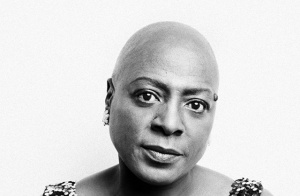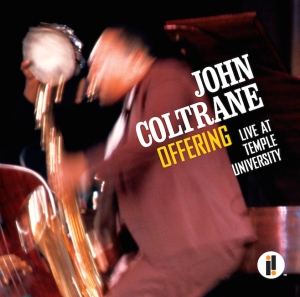Until the last ten years or so I used to buy so few new albums that every purchase was treated like a favorite new record; I would endlessly play it whether or not I thought it was all that great. But recently coming back from Electric Fetus—my favorite record store in the Twin Cities with what must be one of the best record store names in the world—with more than a few CDs (yep, I still buy CDs, just as I was one of the last to buy reasonably priced new releases on vinyl back in the 90s), I realized that this past year I’d listened to enough new music to be more discriminatory.
So here are my favorite recorded things released in 2014 (or, in one case, re-issued this past year). It is most definitely not a best of list. I’m not knowledgeable enough to compile a “best of” list. Looking at most best of music lists for this year, I can say with no sense of shame or pride that I don’t recognize more than half the artists. Rather, this is a list of records that either Todd or I purchased that either grabbed my ear immediately or won me over through the repeated listenings they demanded of me.
They are listed in no particular order, except the last one, which is my favorite:
 John Hiatt, Terms of My Surrender
John Hiatt, Terms of My Surrender
John Hiatt is such a good songwriter, he makes it sound easy, which he does on this wry, bluesy album. From the opening “Long Time Comin’,” Hiatt’s already husky voice smokier with age, I could tell this would be among my favorite in a recent slew of fine albums from Hiatt. How could you not love a record that, amidst the tales of heartache and regret, takes time out to tell us, “listening to John Lee Hooker / got my mind on a slow meat cooker”? As usual, Hiatt plays with crack musicians who really bring these songs to life.
Bob Mould, Beauty & Ruin
Back in the 90s, I used to complain that Bob Mould’s albums all sounded the same, too much like Sugar’s lukewarm File Under Easy Listening. But it has been so long, including Mould’s stumbling foray into electronica, that I’m thrilled that his two latest albums are a return to form. While 2012’s Silver Age recalls Sugar, it’s not FUEL so much as the incandescent Copper Blue. Beauty & Ruin picks up where Silver Age left off, noisy, hooky, self-reflective, and even a bit cranky. Songs like “Kid with the Crooked Face” are Bob Mould doing what he does best.
Spoon, They Want My Soul
It has been four years since Spoon put out an album. Four years! But they’re back with an album that rivals their best, and that’s saying something. The songs on They Want My Soul are typically tight and tuneful. Now, however, synthesizers add a more prominent texture than on previous albums, perhaps due in part to the presence of the newcomer keyboardist Alex Fischel. Because of their catchy, stripped-down songs, they’re one of my favorite bands, and singer Britt Daniel’s often raw-throated style makes him one of my favorite voices in rock.
 Robert Plant, lullaby and … The Ceaseless Roar
Robert Plant, lullaby and … The Ceaseless Roar
Who would have guessed that Robert Plant would be so vital this late in his career? lullaby and … The Ceaseless Roar is a thrilling addition to his catalogue. The music fuses Moroccan beats and timbres, Welsh and American folk traditions, and rock, the results, thankfully, never succumbing to world beat clichés. Rather, what is conjured seems both a logical continuation of all that Plant has done before while also sounding like something entirely new. One can see why he’s not interested in spending his life singing the same old Zep songs once again.
Nels Cline Singers, Macroscope; Nels Cline and Julian Lage, Room
Nels Cline is a versatile guitar player who, with the Nels Cline Singers, has put out some fantastic records that blend jazz, rock, and noise. The NCS are a brainy outfit who manage to be fairly accessible—adventurous yet listenable. Macroscope fully displays the band’s strengths, and one track even includes singing (not all NCS albums do). On Room, Cline teams up with former jazz guitar prodigy Julian Lage for ten often beautiful guitar duets that do away with the effects pedals that Cline can use to such expressive ends. Instead, Room spotlights two talented players weaving intricate, sometimes delicate, melodic lines on acoustic and undistorted electric guitars. If you don’t know Cline, either of these albums is a fine introduction.
John Zorn
In an interview, John Zorn revealed that recently, at least for while, he had planned to release a new album every month. I don’t know if he has maintained that productivity—I believe he may have sustained it for about a year—but he still puts out lots of work, so I’m not going to guess how many of his albums I picked up this year, but two stood out for me: First, From Leaves of Grass, the latest from his jazzy Nova Express project, featuring the sublime Kenny Wollesen on vibraphones. At first rub, Nova Express almost sounds like a throwback to the cool, brainy bop of the Modern Jazz Quartet. But while drawing on bop, their music is definitely more radical in structure. From Leaves of Grass is Nova Express’s most lyrical album to date, though meters, timbres, tempos can still make thrillingly hairpin turns. The other standout Zorn album was The Alchemist, a record of contemporary chamber music. The title track is a string quartet that ranks with Zorn’s other contributions to the genre. But it’s the choral piece “Earthspirit,” with its vibratoless singing and modal melodies, that astonishes. Sounding at once medieval and contemporary, the piece shimmers with dissonance and pulses in unexpected passages of antiphonal singing.
 Sharon Jones & the Dap-Kings, People Don’t Get What They Deserve
Sharon Jones & the Dap-Kings, People Don’t Get What They Deserve
Sharon Jones & the Dap-Kings take the sounds of classic soul music and give them just enough of a contemporary spin to avoid being mere imitation. Best yet, Jones is a powerhouse singer and she is back in full voice after last year’s bout with cancer. The first track, “Retreat!,” is on fire and Jones makes clear she has no interest in taking prisoners, as she warns: “Taking you apart is my kind of fun / Count to three and then you better run / 1, 2, 3, here I come!” And the title track surges with outrage. Still, there are some killer ballads on the album, like the closing, soulful, “Slow Down, Love.” It’s a brief album, but all the better because of it.
Lucinda Williams, Down Where the Spirit Meets the Bone
Down Where the Spirit Meets the Bone, on the other hand, is not a brief album. Clocking in at over an hour and forty minutes, it’s longer than the Beatles’ White Album. And while its length has meant that I haven’t heard the entire record in one sitting more than twice, the songs stick with you, so that by the time I’d seen her in concert at the end of November, songs like “Burning Bridges,” “Cold Day in Hell,” and “Something Wicked This Way Comes” felt like bitter old friends. Lucinda still sounds on top of her game well into her fourth decade of recording music.
 Jack White, Lazaretto
Jack White, Lazaretto
For me, Lazaretto is worth the price of admission alone for White’s update of Blind Willie McTell’s “Three Women.” But the album is filled with melody, invention, and eccentricity, as White draws on blues, folk, country, and mashes them through more contemporary sounds and sensibilities. Some critics have found this White’s most self-conscious, even awkward, record. There’s no doubt that it’s slicker sounding than anything he has done so far—though no less weird—and that he has left the joyful simplicity of something like “You’re Pretty Good Looking” far behind him. But if White is working hard, he’s doing it with his hands and feet at much as with his brain, boasting:
My veins are blue and connected
And every single bone in my brain is electric
But I dig ditches like the best of ‘em
Yo trabajo duro
Como en madera y yeso
Clap your hands and stomp your feet and, well, scratch your head with befuddlement from time to time.
Sun Kil Moon, Benji
I didn’t know what to make of this hushed album when I first heard it, and I’m still not entirely sure, but I do know it caught my attention, compelling me to listen to it again and again. The lyrics seemed plainspoken as if ramblings drawn from songwriter Mark Kozelek’s diary, telling stories of his friends and family, waxing philosophical as he reflects on death, sorrow, and fear. Croaking in a conversational tone, often accompanied only by a guitar and asynchronous backing vocals, I couldn’t always tell when one song left off and another began. But listening to the album closely, the richness of the songs revealed themselves, each clearly distinct from one another, and what initially sound like off-the-cuff lyrics are anything but. It’s not a record for everyone, but if you engage it, it will engage you.
Vijay Iyer, Mutations
Vijay Iyer is one of the best young jazz pianists writing and playing today. And though he usually draws from a wide range of musical traditions, I still wasn’t prepared for an album of subtle chamber music, orchestrated for piano, strings, and “electronics.” It’s a beautiful album, though, that is as rigorous as it is gorgeous. I’d read a number of years ago that string quartets should be relegated to the ash heaps of history because nobody really wrote them any longer; they were artifacts from another time. Zorn and now Iyer are proving that critic wrong. I’ll admit, I would like another jazz album from Iyer, but if his chamber music continues to be as rewarding, I’ll deal with the change in direction if that’s what this album indicates.
 John Coltrane, Offering: Live at Temple University [Reissue]
John Coltrane, Offering: Live at Temple University [Reissue]
This is, hands down, my favorite album of the year. And while it is billed as a “reissue,” it has never been released in its entirety before, at least not officially, so in a way it is a “new” album. Man, what an album! Coltrane recorded it less than a year before his death in 1967, and it features a new lineup including Alice Coltrane and Pharoah Sanders, McCoy Tyner and Elvin Jones having recently left the band. There’s a sense of discovery here that, while always a part of great jazz, is especially palpable not only because of the ecstatic, exploratory nature of the songs, but because these are soulful musicians learning to play with one another. As an offering, this is spiritual music, but it’s not music for church. Rather, it is the sound of Antonin Artaud’s “victims burned at the stake, signaling through the flames.”

Wow, your ears are busy! Thanks for the recommendations.